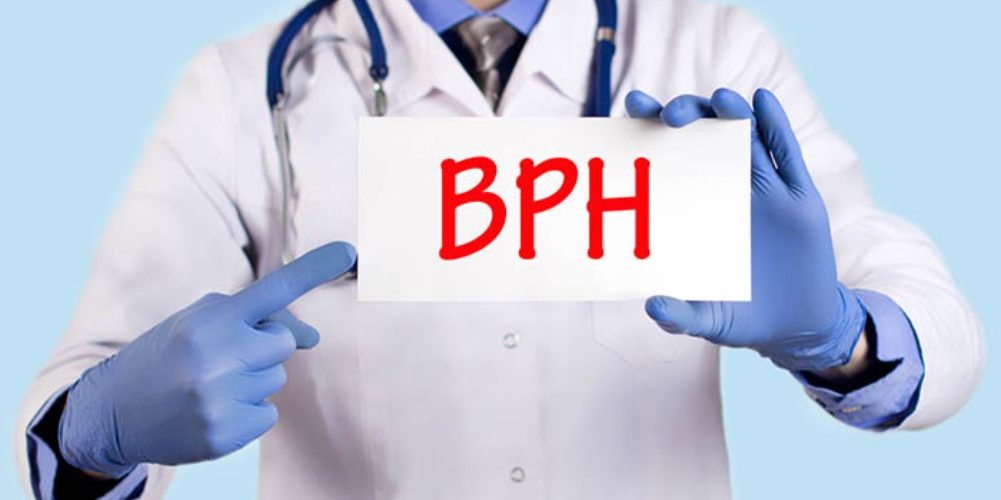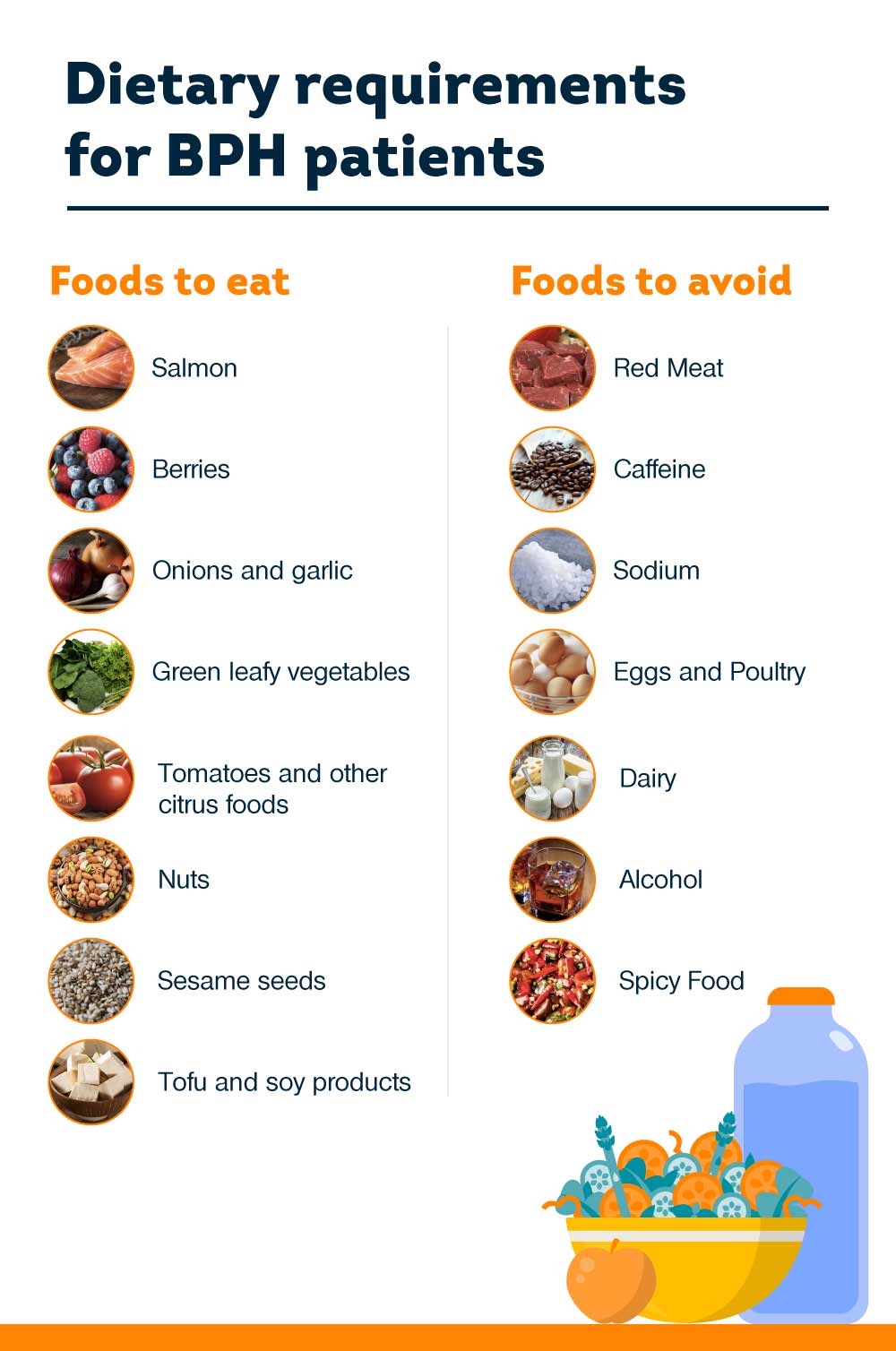
Table of Contents
Dose diet play a role in Prostate Enlargement?
The prostate gland is a small gland that sits behind the bladder in men. During the sexual activity, the prostate gland helps in producing the semen. As some of the men get older, the prostate gland can get enlarged and causes benign prostatic hyperplasia. This article will tell you about the diet to cure the enlarged prostate. The risk of benign prostatic hyperplasia (BPH) increases with age. Almost half of the men will have BPH once they complete 60 years of age. And, yes, making healthy changes to the diet and regular exercise may help you manage BPH symptoms.
Studies suggest that the following factors may lessen BPH symptoms in men:
- A low-fat diet
- Four or more servings of vegetables a day
- A high level of physical activity and no belly fat
Looking at diet, the following nutrients appear helpful:
- Vitamin C. Vegetables highest in vitamin C include bell peppers, broccoli, Brussels sprouts, kohlrabi, snow or snap peas, cauliflower, kale, and tomato or vegetable juices.
- Zinc. Foods higher in zinc include oysters, crab, baked beans, duck, lamb and beef (lean).
Interestingly, there’s little evidence that supplements are useful for BPH. And the role of total protein is unclear. Some studies have demonstrated an increased risk in men who ate red meat every day compared with men who only ate it once a week, but other studies found a decreased risk in men with high total protein intake.
Take note: Healthy habits such as regular exercise, watching your waistline, eating your vegetables and limiting dietary fat may help with BPH as well as lower your risk of erectile dysfunction, diabetes, and heart disease.

Managing symptoms of Prostate Enlargement (BPH) with diet
Some of the most powerful hormones such as sex hormones (testosterone) control the prostate gland. Once the testosterone reaches the prostate gland, it is changed to dihydrotestosterone (DHT). High levels of the DHT cause the cells in the prostate to enlarge. Certain foods affect prostate health because of their effects on testosterone and other hormones.
Research showed that consumption of dairy-rich diet or meat can increase the risk of prostate enlargement. Actually, It is more likely if you do not include vegetables into your diet.
Dietary Requirements for BPH patients

Foods to eat to cure Enlarged Prostate
The diet should be rich in vegetables, fruits, and healthy fats to protect the prostate. These are the specific foods to benefit the prostate:
- Salmon: Salmon is rich in healthy fats that contain omega-3 fatty acids that can prevent and reduce inflammation in the body. There are other cold-water fish, like trout and sardines which are rich in these types of fats.
- Tomatoes: Tomatoes are rich in lycopene which is an antioxidant that benefits the prostate gland cells. Cooking the tomatoes in tomato soup or sauce can release the lycopene and it will be available to the body.
- Berries: blueberries, raspberries, blackberries, and strawberries are a rich source of antioxidants, which can help to remove the free radicals from the body. Radicals are the byproducts of the reactions which occur within the body and cause damage and disease over time.
- Broccoli: Broccoli and other vegetables which include bok choy, cabbage, cauliflower contain a chemical that is known as sulforaphane. This can target the cancer cells and will promote a healthy prostate.
- Nuts: Nuts are rich in zinc. This is found in high concentrations in the prostate and can help balance the testosterone, DHT. Besides the shellfish, nuts and legumes are high in zinc. Mixed nuts are available in grocery stores and also online.
- Citrus: Lemons, oranges, grapefruits, and limes are high in vitamin C, which can protect the prostate gland.
- Onion and garlic: According to a study, it has been found that men having BPH tended to eat less garlic and onion than men without the BPH. There is a need for more research to prove this but onions and garlic are healthy additions to most diets.
Foods to avoid with Enlarged Prostate
The treatment of an enlarged prostate is not only eating healthy food, but it also means to avoid other foods that are not good for the prostate. Some of the food include:
- Dairy: Regular intake of dairy has been linked to an increased risk of BPH. cutting out or by reducing the cheese, butter and milk can help to reduce the BPH symptoms.=
- Red meat: According to research it has seen that not eating red meat will improve prostate health. Daily consumption of meat is believed to triple the risk of developing prostate enlargement.
- Caffeine: Caffeine acts as a diuretic which means that it increases how much a person will urinate. If you cut back on coffee, soda, tea, and chocolate it may improve the symptoms of BPH.
- Alcohol: Alcohol can stimulate urine production. Men with the BPH may find that by giving up the alcohol their symptoms are improved.
- Sodium: A high salt intake will increase the urinary tract symptoms which are associated with BPH. By following the low sodium diet by not adding the salt to the meals and by avoiding processed foods can be helpful for men.
Also Read: Exercises For Prostate
Tips to manage of BPH
Some dietary changes can be effective in managing the symptoms of the BPH, but changing other lifestyle changes can help too. Some of the strategies which may ease the BPH are:
- Quitting smoking
- Avoiding the fluids in the evening which will reduce the nighttime urination
- By doing pelvic floor exercises
- Trying bladder training exercises
- Avoid medications which can worsen the symptoms
- Doing bladder training exercises
- Limit the fluid intake to 2 liters of liquids each day
Takeaway
Treating the BPH can range from making the simple lifestyle changes at home to surgery and medication. By reducing red meat consumption and by increasing the intake of vegetables and fruits can help to manage the symptoms. It’s important to stay in communication with the doctor about the symptoms, mainly if the doctor suggested to watch and wait for an approach. BPH can be treated if you follow the approaches which are given above in the article, so go through the article if you missed any important points and try to follow these procedures for the maximum results.
Also Read:








Hi, thanks for the article. I was having a enlarged prostate and I booked an appointment. I went to the Pristyn Care clinic in Sector 29 Gurgaon. The treatment was pain free and there were no cuts and wounds. Thanks to Pristyn Care.